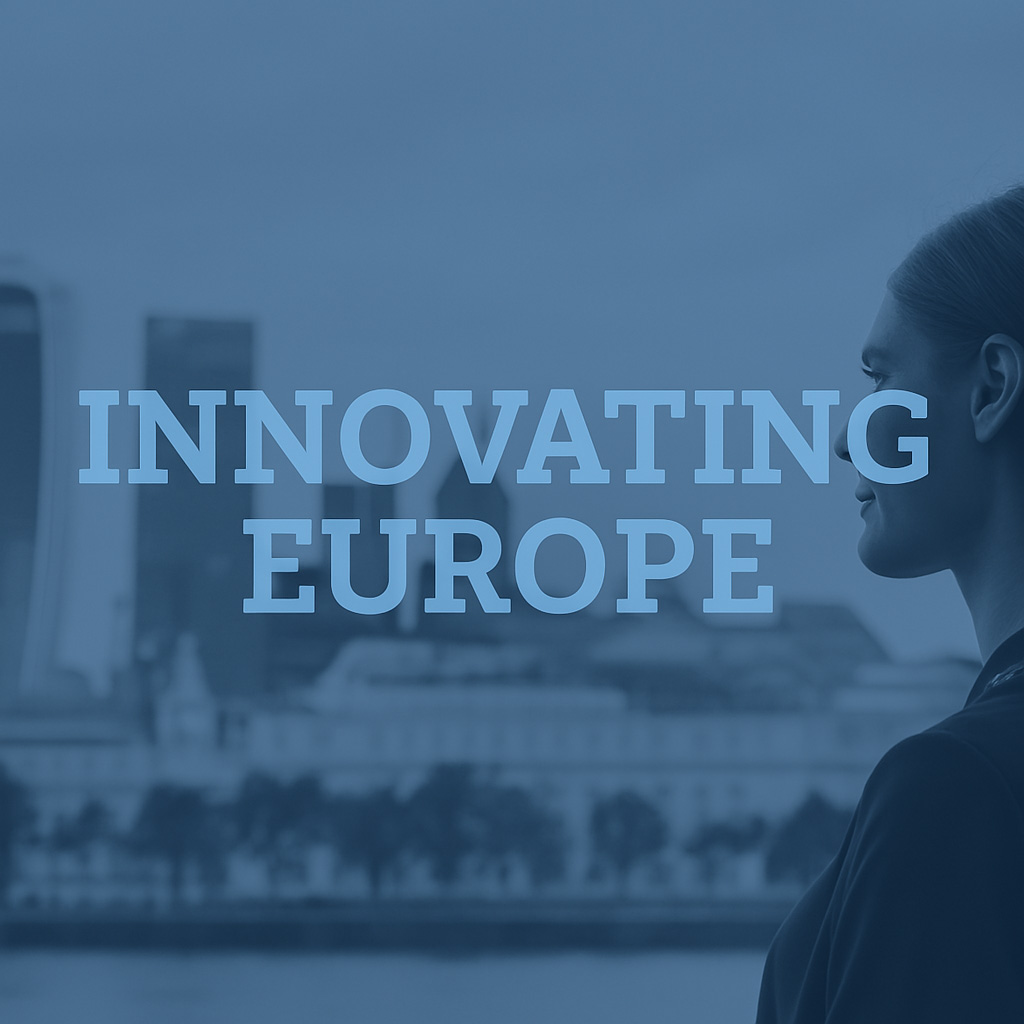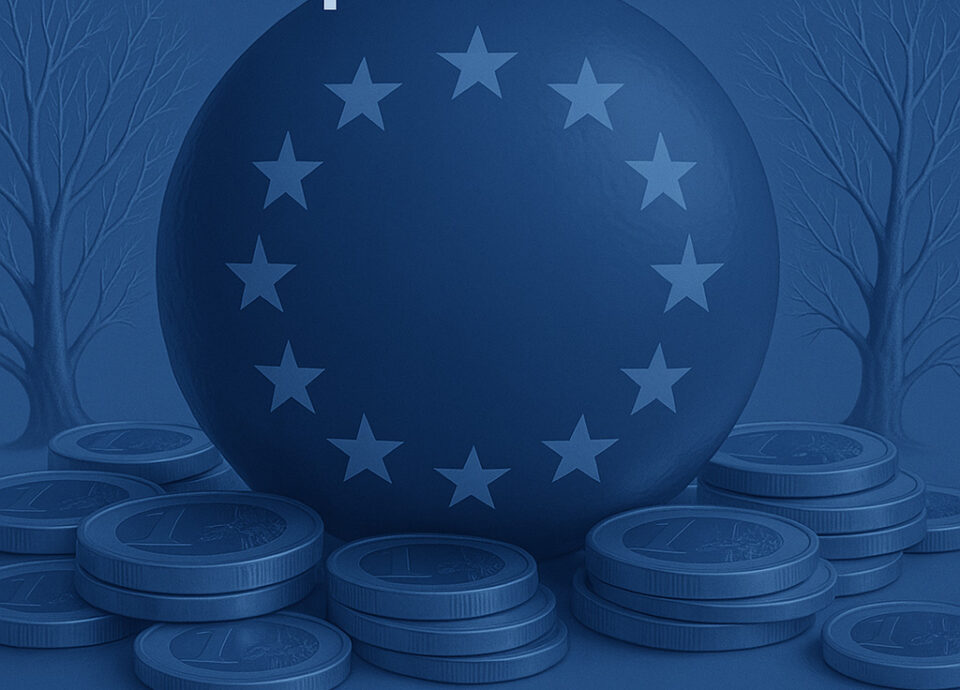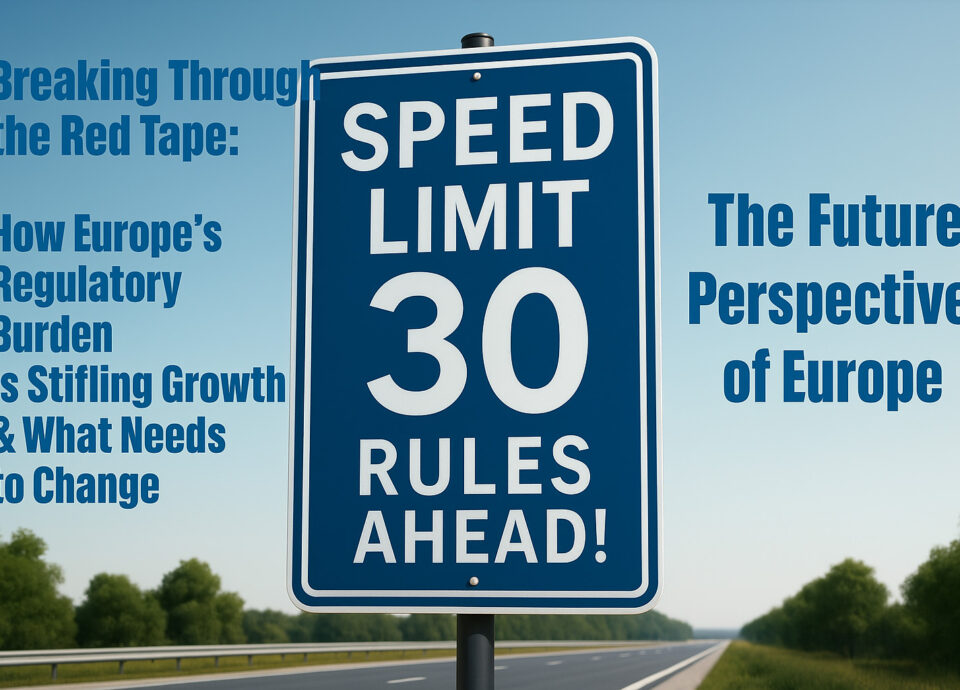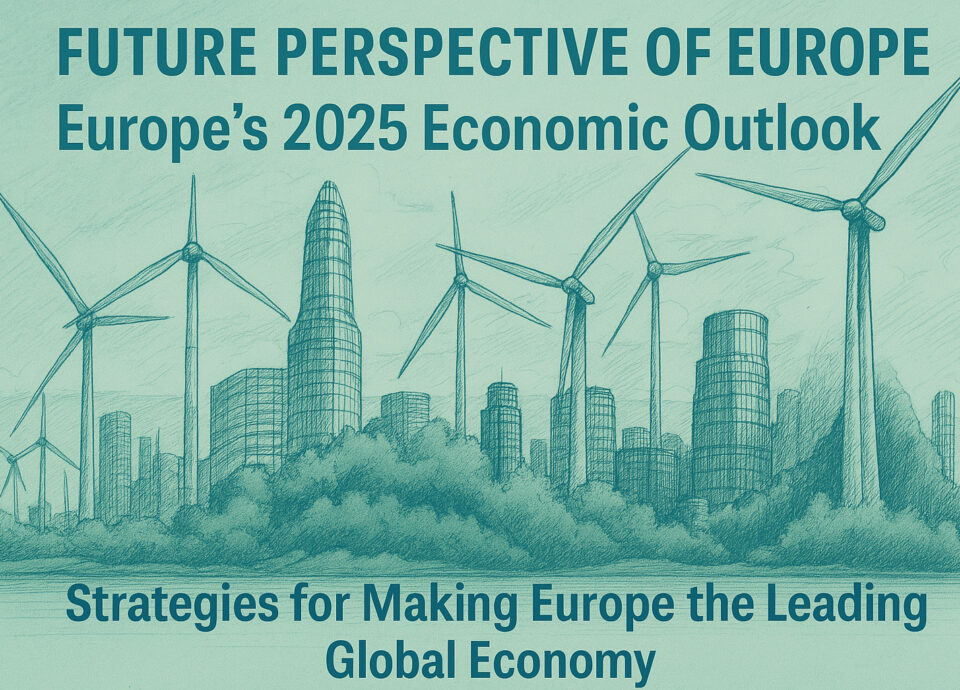Europe Must Choose: Lead or Fall Behind
Europe stands at a turning point. More than ever, decisive action is needed to secure its economic future. More than 500,000 skilled professionals have left Europe in the past decade. Innovation is lagging, and global influence is shrinking. The choice is clear—act boldly or risk falling behind. While the U.S. and China drive technological advancements and economic expansion, Europe is at risk of stagnation. It faces underinvestment, overregulation, and market imbalances, creating a challenging environment for businesses to thrive. The time for hesitation is over. Europe must lead.
The Investment Deficit: Why Europe is Falling Behind
Despite its immense potential, however, Europe’s investment in Research and Development (R&D) lags significantly behind the U.S. and China. A 2025 report from El País warns that unless Europe closes this gap, it will face long-term economic stagnation (El País, 2025). For decades, the same concerns have been raised:
- Why isn’t Europe investing more in innovation?
- Why do U.S. and Chinese firms benefit more from European markets than European startups?
- Why is there such limited support for new European enterprises?
The lack of an ambitious, unified investment strategy continues to hold the continent back. Without urgent intervention, Europe will remain a consumer rather than a creator of global technology and innovation.
Breaking Free from Overregulation
Startups and businesses in Europe face excessive bureaucracy, making growth difficult. Excessive regulations cost European businesses an estimated €150 billion annually, disproportionately affecting small and medium-sized enterprises (SMEs). While large corporations can absorb compliance costs, startups and scale-ups are suffocating under complex rules.
For instance, Dutch cloud communications company Bird, which relocated its operations due to EU AI regulations. Similarly, German companies report that excessive compliance requirements drain resources, limiting their ability to expand and innovate. Unless regulatory reform is prioritized, Europe will continue to lose talent and businesses to more entrepreneur-friendly regions.
The Power Struggle: Can Europe Compete with the U.S. and China?
As a result, Europe is stuck between two economic superpowers:
- China aggressively invests in AI, renewable energy, and infrastructure, solidifying its dominance in the global market.
- The U.S. leads in venture capital, Big Tech, and AI innovation, ensuring that American companies remain at the forefront of technological advancements.
At the same time, Europe struggles with fragmented policies, rigid taxation, and trade restrictions. The reality is that if Europe does not take control of its economic destiny, it will be dictated by external forces.
A Roadmap to European Economic Leadership
To become the world’s largest economy, To regain its competitive edge, Europe must implement a bold, structured strategy that prioritizes:
1. Leveling the Playing Field (Short-term: 1-3 years)
- Unify tax and trade policies to prevent foreign companies from benefiting more than European firms.
- Implement a Digital Trade Platform to simplify taxation, customs, and regulatory compliance for businesses.
- Create a Fair Taxation Board to ensure multinational corporations contribute their fair share.
2. Investing in Strategic Industries (Mid-term: 3-7 years)
- Launch a €100 billion European Sovereign Innovation Fund to accelerate investment in AI, Green Tech, and Digital Infrastructure.
- Develop AI Research Hubs in Berlin, Paris, and Amsterdam to attract top talent and compete with Silicon Valley and Beijing.
- Retain European Talent by offering incentives to high-skilled professionals to remain and innovate within Europe.
3. Strengthening Europe’s Global Influence (Long-term: 7+ years)
- Lead in ethical AI regulation with a European AI Ethics Certification to set global standards.
- Forge strategic trade alliances beyond the EU, particularly in Africa and South America, to reduce dependence on U.S. and Chinese markets.
- Introduce the EU Startup Passport, enabling seamless business operations across all member states.
Europe’s Moment: Lead, or Be Led
Ultimately, At this critical juncture, Europe must decide: reshape the global economic order or remain a secondary player in world affairs. Policymakers, investors, and business leaders must unite to drive radical change. The time for small reforms is over—Europe needs a revolution in its economic strategy.
Through innovation, reduced bureaucracy, and bold investment, Europe can become the world’s leading economy. The time to act is now.





